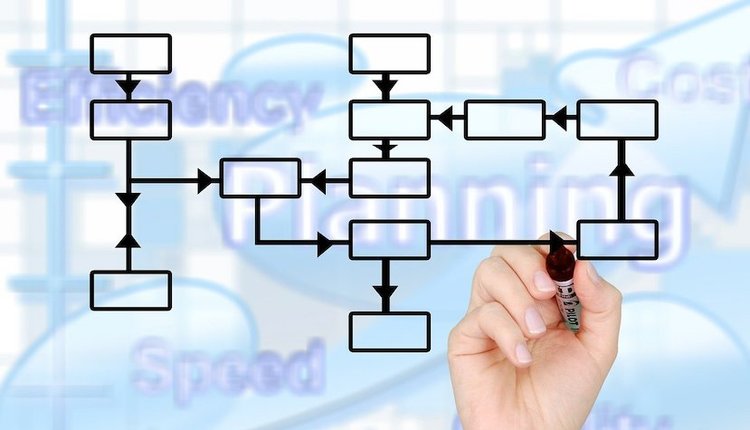
I keep being asked to go to all sorts of companies in order to lift my wand and say a couple of magic words, and at this moment, everything should change in the company: People would have instant access to the documents they need; documents required for processing would appear before those that place the approval stamp; and there would be a magic shield preventing unauthorized access to all the documents. This is an untold story, but, still, a real story. Not that people ask exactly in those words, but the expectations are there, and this is what makes everything so fascinating.
When processes are bad, trying to make them better just by translating them into the digital world will make Freddy Krueger look like a choirboy—and even when the processes are good, or even when processes are the best in the paper context. Surprised? Don’t be. "I already have the perfect process, for which I paid a fortune last year to a consultancy company” is a textbook comment from a director of a paper-oriented company that wants to migrate to the digital world but still believes that all the investments already made have to continue to generate profits. Some may; some won't. Imagine the following scenario: I have three kids and a motorbike. I need to have an excellent process in order to take them to school every morning before eight-thirty and arrive at my office before nine o’clock. Within the law, I make three runs between my house and the school, leaving at eight o’clock with the first kid, then at eight-fifteen with the second and then just before eight-thirty with the third, going then straight to my office. Is there any better process than this one? Of course not. This is, indeed, the perfect process.
Then, I bought a car. A small car, true, but still a car, like any other, that will carry up to five people. I can replicate my previous process, which we all agreed was perfect. Errr, it was, wasn’t it? Now, with the car, I do not need to make more than one trip to the school. Then, why was the previous process perfect? What people miss most of the time is that when we qualify a process, it must be weighted by the supporting tool. The three trips to the school with a motorcycle would make that process perfect, but if we replicate the same process, but with a different tool (the car), then we have a stupid process. So, no process is perfect or stupid per se but only when weighted by a specific tool.
This is where the plot thickens. Companies have paid consultants to draw a number of processes to be used with paper or with the very basic digital tools, such as emails or shared folders. When they want to seriously move into electronic document management (EDM), they have to think—a lot—again. This is an obvious inconvenience, because someone spent the money in previous consultancy (and it was the right thing to do at the time), and now, the boss may not understand why that consultancy cannot be 100% used. This is the reason: It is so important to talk, when possible, with the owner of the money or whoever is closest. Interesting enough, certified companies, which are those who committed to have a continued approach to process improvement, usually show no special interest in document management under the argument that “we are already certified,” which is a dialogue killer—and my dialogues have already been killed a number of times.
Last, but not the least, the question, “Why do I need an EDM solution? I already have enterprise resource planning, customer relationship management and email that works.” People tend to forget why managers are paid. Managers are paid for a simple thing: to make decisions. However, to make a decision, you need knowledge. To have knowledge, you need to process information, and information travels and sits on documents. This is the reason managing documents is so important and should be dealt with long before all the other application, regardless if they “manage their own documents,” which is a shot in the foot, because documents should be located in a unique repository so that we can find any document, regardless of its origin.
So, the secret in having a very efficient electronic document management solution is not (only) the technology or any "magic" someone will promise you. It is the old "sitting down and thinking": Where am I? Where do I want to go? What is my benefit with this change?
Joao Penha-Lopes specializes in document management since 1998. He holds two postgraduate degrees in document management from the University Lusofona (Lisbon) and a PhD from Universidad de Alcala de Henares (Madrid) in 2013, with a thesis studying the economic benefits of electronic document management (EDM). He is an ARMA collaborator for publications and professionally acts as an advisor on critical information flows mostly for private corporations. Follow him on Twitter @JoaoPL1000.
















